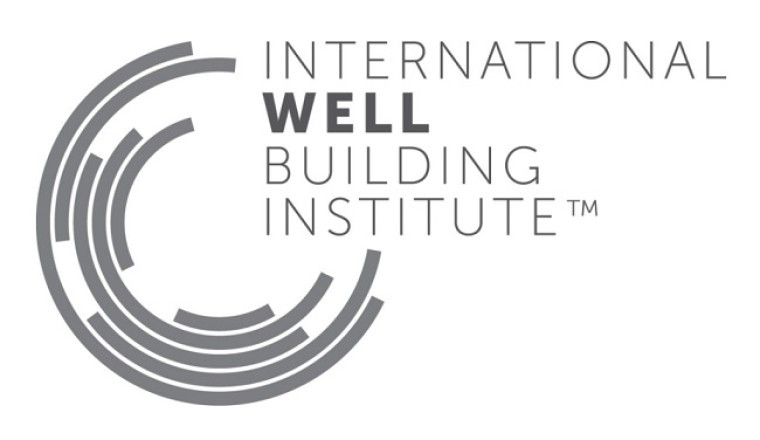
The Middle East region is leading the charge in driving growth and adoption of the WELL Building Standard (WELL) globally with a 24-fold increase in WELL adoption over the last 19 months, a feat announced today by the International WELL Building Institute (IWBI), the global authority for driving market transformation toward healthy buildings, organizations and communities, and the leading force behind the WELL movement.
WELL, the world’s leading roadmap for creating and certifying spaces that advance health and well-being, has been adopted throughout the Middle East by projects in sectors ranging from regional public sector, educational and governmental entities to real estate developers, financial institutions and management companies. To date, more than 500 million square feet of real estate are enrolled in WELL programs across 16 countries, including the United Arab Emirates (UAE), Afghanistan, Bahrain, Iran, Iraq, Israel, Jordan, Kuwait, Lebanon, Oman, Palestine, Qatar, Saudi Arabia, Syria, Turkey and Yemen – representing a doubling in the number of countries represented.
“Ever since the WELL Standard first took hold in the Middle East, we have seen incredible increases in demand year-over-year for WELL’s evidence-based strategies that support the physical and mental health of organizations’ most valuable asset – people,” said IWBI Founder Paul Scialla. “The commitments made by companies and public sector organizations across the region to prioritize the health, safety and well-being of their people is an inspiration to us all and demonstrates outstanding leadership, while proving that investments in health strategies can spark enhanced performance and increased financial returns.”
Recent uptake in the Middle East has contributed to overall WELL adoption, which now stands at more than 42,000 projects encompassing nearly 4.8 billion square feet of real estate in 127 countries. In particular, the WELL Health-Safety Rating, a framework for driving resilience into the center of business policies and operational plans through facility operations and management, has sparked considerable demand across the region that is being led by the UAE.
In a public sector-leading push, the UAE Prime Minister’s Office has achieved the WELL Health-Safety Rating for its Dubai office. This follows the office’s achievement of WELL Certification at the Platinum level, the first in the region to be certified through IWBI’s WELL v2 pilot and the first WELL Certified government ministry office in the world. Dubai Police enrolled five buildings including its headquarters to pursue WELL Certification, and achieved the WELL Health-Safety Rating for these buildings. Its jails are also enrolled in the rating. Expo City Dubai, an IWBI member and host of COP28, is the region’s first community enrolled to pursue certification through the WELL Community Standard pilot, a district scale program that sets a benchmark for healthy communities. Expo City Dubai has also enrolled 23 buildings in the WELL Health-Safety Rating. The Dubai Land Department (DLD)’s Real Estate Regulatory Agency (RERA) also officially adopted the WELL Health-Safety Rating and continues to encourage organizations to align with the program in jointly owned properties (JOPs) and enhance investor confidence. DLD achieved the rating for its building to strengthen the health and safety of all employees, staff and guests.
His Excellency Sultan Butti bin Mejren, Director General of DLD, said of the achievement: “DLD is constantly looking to implement and keep abreast of the latest global developments on the real estate and environmental levels, based on its vision to position Dubai as the world's premier real estate destination and a byword for innovation, trust and happiness. Obtaining the WELL Health-Safety Rating enhances the advancement of our objectives and plans, helping us contribute to achieving a leadership approach in prioritizing the health and safety of humans and buildings as well as to paving the way for jointly owned property management companies to follow our example in obtaining this important classification.”
Private sector organizations are also leading the way in the region:
- Abu Dhabi National Oil Company (ADNOC) achieved the WELL Health-Safety Rating for eight buildings, including its headquarters which stands at 1,915,975 square feet.
- In 2023, Nakheel enrolled all 10 of their own offices in the rating. In late 2022, Nakheel Community Management was awarded the WELL Health-Safety Rating for 365 buildings, making it the first management company in the UAE to achieve the rating across its portfolio.
- Mubadala Investment Company, an IWBI member, is the first company in the UAE and the broader region to enroll in IWBI’s WELL at scale program, which enables organizations to measure and improve organizational health performance and its impact across all locations. Five UAE locations will deploy WELL strategies to advance health and well-being for employees, tenants and investors.
- Majid Al Futtaim (MAF) achieved the WELL Health-Safety Rating for all of its 11 offices in 2022, including Towers 1 and 2 and its 363,000-square-foot Dubai-based headquarters. It also enrolled all 29 malls across the Middle East and North Africa in the WELL Health-Safety Rating, marking the region’s largest retail enrollment.
- Consistently valuing its tenants, the nearly 1.1 million square-foot ICD Brookfield Place in Dubai has achieved and renewed the WELL Health-Safety Rating for three years.
- Merex Investment has achieved the WELL Health-Safety Rating for all its retail mall destinations, including JBR and City Walk.
- Emaar Community Management, the management company of EMAAR, a global property developer and one of the world’s largest real estate companies, achieved the WELL Health-Safety Rating for 218 buildings across Dubai in 2022.
Also in Dubai, UAE, and hailing from the educational sector, Hamdan Bin Mohammed Smart University HBMSU) was the first university in the Middle East to achieve the WELL Health-Safety Rating and is pursuing WELL Certification, demonstrating its commitment to advancing the health, safety and well-being of students, staff and educators in higher education learning environments. Dr. Mansoor Al Awar, HBMSU Chancellor, said: “HBMSU continues to employ and adopt innovation strategies, as well as engage with leading international institutions in line with our commitment to provide a unique and creative learning environment that enhance and encourage the overall well-being of our faculty members, administrative employees, and learners. We implement this under the guidance of HH Mohammed bin Rashid Al Maktoum, Vice President and Prime Minister of the UAE and Ruler of Dubai, who has made innovation at the center of the UAE’s sustainable development approach.”
In addition, Higher Colleges of Technology, one of the largest educational institutions in the region, achieved the WELL Health-Safety Rating across all 14 of their campuses. Heriot-Watt University also achieved the WELL Health-Safety Rating for its campus in Dubai. Misk Schools campus is the first school in the Kingdom of Saudi Arabia and the region to achieve WELL Precertification.
“The Middle East is delivering on WELL’s promise of improving human health and well-being in a way that helps individuals do their best work and be their best selves,” said IWBI President and CEO Rachel Hodgdon. “These organizations are using WELL’s research-backed strategies to support the health, safety, productivity and happiness of the people who use their buildings every day, driving organizational performance in the process.”
"The UAE has defined itself as a true leader of the region in enhancing the health, safety and well-being of people across diverse industries and buildings that are adopting WELL. We are incredibly proud of the progress driven by sectors including governments, educational institutions, developers, retail operators, management companies and more as they collectively lay a foundation for a healthy future," said Tekha Selim, Vice President and Head of MENA Region, IWBI.
Other regional highlights include the following:
- Demonstrating widespread adoption of WELL across diverse sectors, the Museum of the Future, regarded as “the most beautiful building on Earth,” achieved the WELL Health-Safety Rating in June 2023.
- Major commercial office towers in Dubai that have achieved the WELL Health-Safety Rating include Al Thuraya Tower by the financial institution Emirates NBD REIT and Dubai Festival Tower by Al Futtaim Group.
- Stantec, a global leader in sustainable design, achieved the WELL Health-Safety Rating earlier this year for five offices in the Middle East: Dubai and Abu Dhabi, UAE; Doha, Qatar; Manama, Bahrain; and Riyadh, Kingdom of Saudi Arabia.
- Honeywell Emaar Business Park has achieved the WELL Health-Safety Rating.
- The 167-acre Imkan Misr community is the first in Egypt to enroll in the WELL Community Standard pilot, and has enrolled its signature building to pursue WELL Certification.
- MAG of Life and Ritz Carlton Residences have enrolled in the WELL Community Standard pilot and enrolled 10 Ritz Carlton Residences buildings to pursue the WELL Health-Safety Rating.
- Last year, Kaizen Asset Management Services, a leading property management firm in the UAE with an asset management portfolio valued at AED18bn, achieved the rating for 90 properties.
- Dubai-based SAGA International, which provides homeowners association and management services, obtained the WELL Health-Safety Rating for 32 buildings.
- Little Explorer is the first organization in the region to enroll in the WELL Performance Rating.
The WELL Building Standard (WELL) is a library of holistic evidence-based building and organizational strategies–organized into 10 impact categories–that can improve the health and well-being of people. WELL Certification is the highest pinnacle of achievement of strategies across all 10 concepts: Air, Water, Nourishment, Light, Movement, Thermal Comfort, Sound, Materials, Mind and Community.
The WELL ecosystem includes certification through the WELL Building Standard and the WELL Community Standard pilot, along with ratings that are targeted subsets of strategies from the WELL Standard, and which focus on thematic, goal-focused achievements that demonstrate an organization’s commitment to health and well-being. The WELL Community Standard pilot aims to impact the health of individuals through the public spaces where they spend their days. The WELL Health-Safety Rating helps organizations address the health, safety and well-being of their people, and communicates to everyone entering a space that evidence-based measures and best practices for safety have been adopted and third-party verified. The WELL Performance Rating helps organizations implement best practices for continuous monitoring and performance across key IEQ metrics related to air quality, water quality, thermal comfort, acoustics, lighting and occupant experience. Launched in late 2022, the WELL Equity Rating is a roadmap for organizations to set, achieve and report on goals that elevate diversity, equity, inclusion and accessibility in driving health equity.
IWBI’s WELL at scale program is for business leaders who want to prioritize health and well-being across their entire organization or real estate portfolio. Subscribers gain access to all WELL offerings, including pursuit of unlimited certifications and ratings, concierge service and strategic ESG and marketing support to amplify impact.
More than 150 individuals across the Middle East are now credentialed or registered through the WELL Accredited Professional (WELL AP), highlighting the growing pool of practitioners and industry professionals looking to develop and demonstrate their knowledge of health-focused strategies.









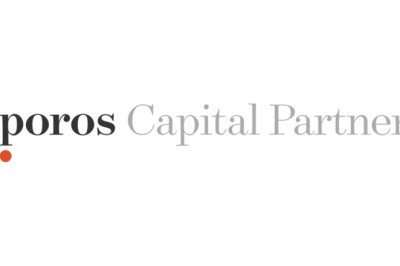

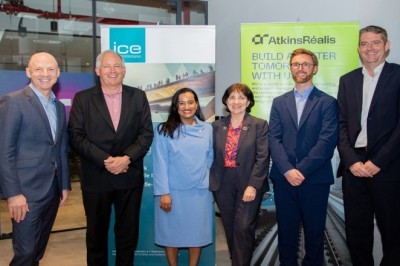
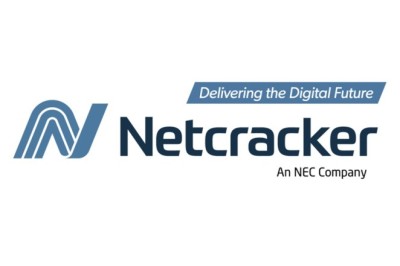


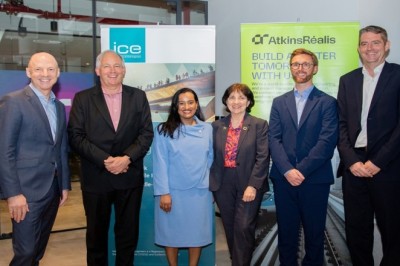

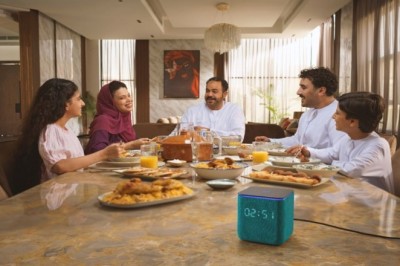

Facebook Conversations
Disqus Conversations